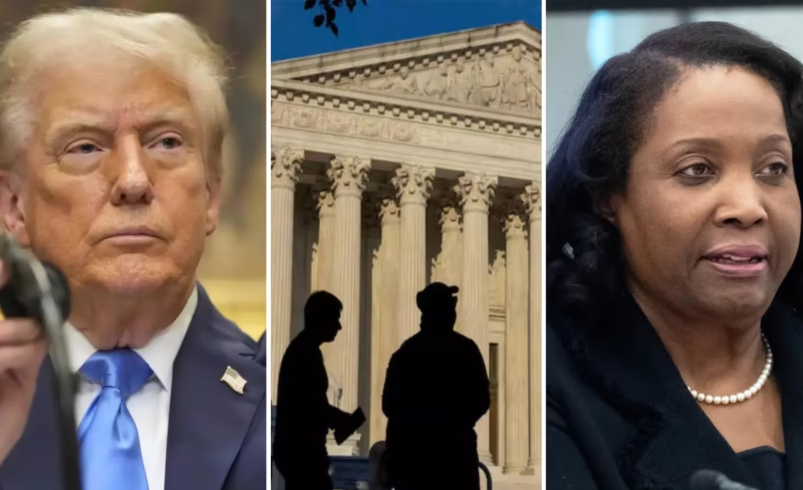Supreme Court blocks Trump attempt to remove Fed Governor Lisa Cook
- October 1, 2025
- 0

The U.S. Supreme Court has intervened in a high-profile dispute involving Donald Trump and Federal Reserve Governor Lisa Cook, ruling that she cannot be removed from her position before scheduled arguments in January 2026. The decision temporarily shields Cook from dismissal and places the case at the center of a broader debate over presidential authority and the independence of federal institutions.
The Court’s order prevents Trump from immediately firing Lisa Cook, who has been accused by him of mortgage fraud. Lower courts had already ruled that her removal would violate statutory protections requiring dismissal only “for cause.” By agreeing to hear the case in 2026, the justices have ensured that Cook will remain in her role until arguments are presented and a final decision is reached.
The dispute underscores the rare but significant legal challenges surrounding the Federal Reserve’s autonomy. Historically, the central bank has been insulated from direct political influence to maintain credibility and stability in financial markets. This case highlights how presidential attempts to dismiss officials can collide with long-standing protections designed to safeguard institutional independence.
Trump accused Lisa Cook of involvement in mortgage fraud, claims that became central to his effort to remove her from office. However, lower courts determined that such allegations did not meet the legal threshold required for termination under existing statutes. Their rulings emphasized that Congress established “for cause” protections precisely to prevent politically motivated dismissals of key economic officials.
Judges reviewing the case concluded that allowing an immediate dismissal would undermine both statutory safeguards and broader principles of agency independence. They stressed that Congress intentionally limited presidential power in this area to ensure continuity within financial governance structures, particularly at institutions like the Federal Reserve where stability is paramount.
Beyond its implications for Lisa Cook personally, the case raises fundamental questions about executive authority. At issue is whether a president can override statutory limits on removal powers when alleging misconduct by an appointed official. The Supreme Court’s eventual ruling could set a precedent affecting not only the Federal Reserve but also other independent agencies across government.
The Supreme Court’s decision to delay action until January 2026 ensures that Lisa Cook remains in her position for now while giving both sides time to prepare their arguments. The outcome could reshape how future presidents interact with independent agencies and redefine boundaries between political leadership and institutional autonomy in American governance.